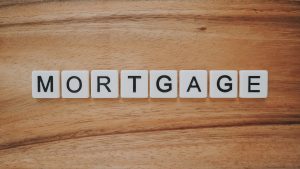What is a reverse mortgage and how can it help you make ends meet?
As a homeowner, you can accumulate wealth to give to your children or grandchildren, control your living expenses, and grow equity in your home over time, among other financial advantages.
The “equity” of a home is the difference between its market value and any outstanding mortgages. In the form of a reverse mortgage, equity can be employed to provide a continuous income stream, making it a particularly valuable financial resource as you age. This can be a good way to make money in your later years of retirement or if you’re having trouble with money in some other way.
What does the term “reverse mortgage” mean?
A reverse mortgage is a loan that converts the value of your home into recurring cash payments without the need to sell the property. Your monthly payments will be taken care of by the lender, or you can get a line of credit that you can use as needed.

An increasing number of homeowners are using reverse mortgages to generate tax-free income. According to the Consumer Financial Protection Bureau, reverse mortgage originations increased by more than 36% between 2020 and 2021, from 43,000 to 59,000. (CFPB).
How do reverse mortgages work?
Due to the structure of the loan, this type of financial arrangement is called a “reverse mortgage.” With a typical mortgage, you borrow money to purchase a home and then repay the lender on a monthly basis. However, with a reverse mortgage, the lender pays you.
The fact that the title of your home remains in your name when you receive a reverse mortgage loan is undoubtedly one of the most important characteristics. You surrender a portion of the equity you have accumulated in the property.
When you receive a reverse mortgage, the monthly interest and fees are added to the balance of your reverse mortgage. As a result, the loan balance increases each month.
And here is the key point: when you borrow against the equity in your home, the equity in your property decreases.
Jennifer Fraser, of GreenPath Financial Wellness, a licensed reverse mortgage counseling organization, notes, “The difference between a forward mortgage and a reverse mortgage is that you have access to a portion of your potential equity without having to make a monthly mortgage payment.” However, your home’s equity decreases as a result of the lender’s equity advance.
Other crucial features of the operation of reverse mortgages include the following:
In the majority of cases, you must be at least 62 years old to apply for a reverse mortgage. However, some lenders allow applicants as young as 55.
You must continue to pay taxes and insurance on your home.
You must also keep your residence in good condition.
When the borrower vacates the property, the reverse mortgage is repaid. Typically, the homeowner or the person’s heirs will sell the home to pay off the debt.
Several varieties of reverse mortgages
There are three types of reverse mortgages, each with specific characteristics.
Mortgages are used to convert home equity (HECM).
HECM, or home equity conversion mortgage, is arguably the most common type of reverse mortgage. The United States Department of Housing and Urban Development backs HECMs as the only federally insured reverse mortgages (HUD). Therefore, only FHA-approved lenders are permitted to offer these loans (FHA).
HECM borrowers have the option of receiving funds as a fixed monthly payment, a line of credit, or a mix of the two. The money can be used for any purpose.
The only reverse mortgages
Individual lenders instead of the government back proprietary reverse mortgages. And unlike HECMs, these loans are frequently offered to applicants under the age of 62. Steve Irwin, President of the National Reverse Mortgage Lenders Association, stated that some reverse mortgage lenders accept applicants as young as 55. (NRMLA).

In addition, private reverse mortgages are well-known for offering bigger loan amounts than HECMs. So, if your home is worth $1 million, $2 million, or more, you will have better access to your equity with a customized reverse mortgage than with a HECM.
Currently, the maximum FHA loan amount for a HECM is $970,800. Therefore, just $970,800 of the home’s total worth is taken into account. If your home is worth more than $1 million, the excess value is disregarded, as described by Irwin. Some private mortgages might exceed between $4 million and $6 million, making them jumbo mortgages.
Reverse mortgages with only one purpose
State and local government agencies offer single-purpose reverse mortgages, which are possibly the least popular and, in some cases, the cheapest option. In some cases, these mortgages are also provided by non-profit organizations.

According to Fraser, “single-use reverse mortgages may only be used for the purpose permitted by the lender.” This purpose may involve paying property taxes and performing home maintenance.
According to Fraser, these types of reverse mortgages permit access to a smaller amount of home equity, resulting in smaller loans. In other situations, homeowners with low to moderate incomes may be the only ones eligible for a reverse mortgage.
Reverse mortgage requirements
Even though the requirements for a reverse mortgage may be very different for each of the three types of loans and each lender, the following are usually needed:
Age requirements
The HECM requires that borrowers be 62 years of age or older. Irwin says that, depending on the situation, the minimum age for a reverse mortgage could be anywhere from 55 to 60 years old.
Residency requirements
The home must act as your primary residence. Therefore, you must reside there for the majority of the year.
Housing counseling requirements are mandated.
Reverse mortgage applicants are required to meet with an independent housing consultant to discuss their finances and the implications of a reverse mortgage. According to Irwin, both proprietary reverse mortgages and FHA-insured HECMs require third-party counseling.
mortgage equity
Most reverse mortgages are only available to people who already own their home or have paid off a large part of their mortgage.Debt
The majority of HECM lenders require applicants to have no federal debt. This includes, among other things, federal income taxes and federal student loans.
The condition of the home
Typically, the home must be in good condition to qualify for a reverse mortgage. If not, the lender may require you to make repairs before granting the loan.

The benefits and drawbacks of reverse mortgages
Before continuing, the advantages and downsides of reverse mortgages must be thoroughly evaluated. Depending on your short-and long-term financial objectives, you may or may not qualify for this type of loan.
Benefits: consistent financial flow
Whether you choose regular payments or a line of credit, a reverse mortgage can provide a steady stream of income. This could be especially important for individuals on a fixed income.
The benefit: no mortgage payments.
With a reverse mortgage, the lender pays you, and you are no longer responsible for making mortgage payments. This is also an important feature that can be helpful for elderly people with low resources. for those who just want some extra cash on hand for a trip, to pay for their children’s education, or for other unanticipated needs.
Avoid using alternative retirement funds.
Borrowers might avoid delving into their retirement savings accounts by utilizing a reverse mortgage. This is particularly advantageous during market dips that damage retirement accounts.
Reverse mortgage income is not taxable.
Under no circumstances is a reverse mortgage’s income subject to taxation. The IRS considers the funds to be a loan advance.
You reduce the value of your home.
Your equity decreases as the balance of your reverse mortgage loan increases. If you want to leave your heirs a home with equity, you should think carefully about this before you do anything else.
Fees and interest are detrimental.
Reverse mortgages, like any other loan, carry interest and fees. Numerous creditors charge origination fees, closing costs, or both. In addition, servicing fees may be imposed over the life of the loan. Depending on whether you get a HECM or a proprietary reverse mortgage, you may have to pay insurance on top of the loan amount each month.
You must still pay taxes and insurance premiums.
The reverse mortgage arrangement stipulates that homeowners continue to pay their own property taxes and homeowner’s insurance. This indicates that you must have sufficient funds to cover these costs.
When does a reverse mortgage make sense?
Reverse mortgages are not appropriate for all homeowners. There are costs and responsibilities associated with the upkeep of this type of loan. The person who wants to borrow money must have enough money to keep paying their own property taxes and insurance.
Irwin explains that “it is of the utmost significance that borrowers understand they must pay their property taxes and homeowner’s insurance on time.” Inaction may result in the debt being due and payable.

Irwin thinks, however, that loans can be a helpful source of income for the right person under the right circumstances.
Irwin observes that the majority of clients choose reverse mortgages in order to be relieved of their monthly mortgage obligation on their current house. “We are aware that the majority of older homeowners opt to remain in their homes as they age. In addition, it has proven difficult to maintain a monthly mortgage payment after retirement.
A reverse mortgage can also help older people who want to make changes to their homes but don’t want to get a traditional personal loan with principal and interest payments.
Lastly, some people don’t want to spend their retirement money right away, especially if the value of their accounts dropped during a bear market.
Irwin observes that an increasing number of people are integrating reverse mortgages into their overall financial strategies. “This includes the smart use of home equity if retirement investment and savings accounts have incurred losses. In the meantime, individuals may utilize their home equity strategically.
How to avoid reverse mortgage-related disadvantages
Reverse mortgage fraud must be avoided at all costs, according to the CFPB. These may include contractors who force you to use a reverse mortgage to pay for repairs that you may not want or need. Or, these scams may be sold as deals only for veterans or as reverse mortgages with no payments.
As Fraser acknowledges, senior citizens are unfortunately a common target. One of the benefits of reverse mortgage rules is that applicants are obliged to attend an educational session with a professional counselor prior to closing. When conducting these discussions, we are on the lookout for signs of stress or individuals who may be asked to liquidate their equity for an unintended reason.
Before getting a reverse mortgage, you should make sure you know what it means and have a thorough plan.
